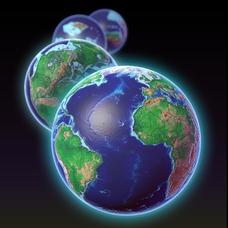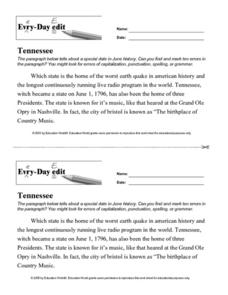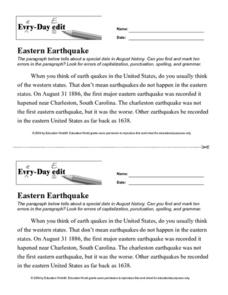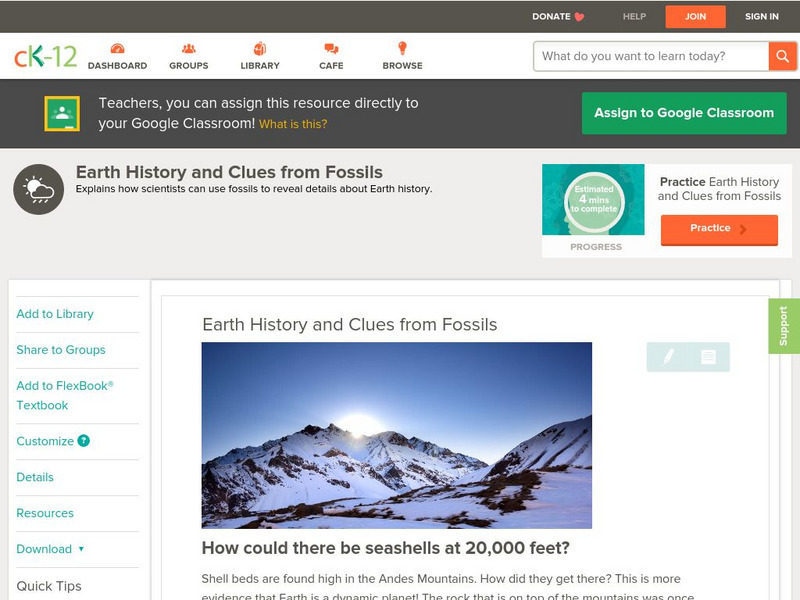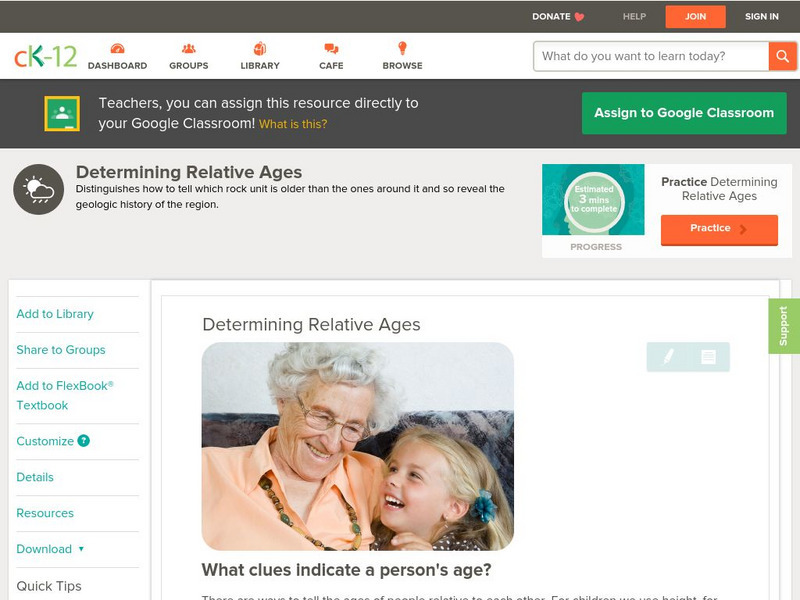Howard Hughes Medical Institute
Deep History of Life on Earth
Take it all the way back! Young scientists discover the changes that took place from the time Earth became solid to present day through an interesting interactive. The resource guides users through key events that have shaped our world...
Howard Hughes Medical Institute
EarthViewer
Can you imagine Washington DC and London as close neighbors occupying the same continent? Learners will be fascinated as they step back in time and discover the evolution of the earth's continents and oceans from 4.5 billion...
Weebly
Phases of Life Poster Project
Now this is a clever approach to familiarizing aspiring astronomers with the phases of the moon! They first record the specific dates for ten special events in their lives. Then they use an online moon phase calendar to find out which...
Curated OER
The Gopher Tortoise
Can you believe the gopher tortoise was around when the dinosaurs were walking the Earth. Learn all about this creature that is one of Florida's most popular reptiles. Hands-on-activities and a glossary full of scientific terms...
Howard Hughes Medical Institute
Lesson 2: Gorongosa National Park
How has Gorongosa National Park changed over time? Discover the park's rich history, dating back to primitive human times, through an interactive timeline and scientific reading. The second installment in an eight-part series explores...
Student Handouts
What Year Is It?
This page includes a space to write in the date, but what does the date even mean? And where does it come from? Inform your class about the various calendars and how the Western calendar came into widespread use with an informational...
Education World
Every Day Edit - Tennessee
For this everyday editing worksheet, students correct grammatical errors in a short paragraph about Tennessee. The errors range from punctuation, capitalization, spelling, and grammar.
Education World
Every Day Edit - Neptune's Discovery
In this everyday editing instructional activity, students correct grammatical mistakes in a short paragraph about the discovery of Neptune. The errors range from grammar, spelling, capitalization, punctuation.
Education World
Every Day Edit - The Big Wind
In this everyday editing worksheet, students correct grammatical mistakes in a short paragraph about the strongest wind ever measured. The errors range from punctuation, capitalization, grammar, and spelling.
Education World
Every Day Edit - Pluto, the Dwarf Planet
In this everyday editing instructional activity, students correct grammatical mistakes in a short paragraph about the planet Pluto. The errors range from punctuation, capitalization, spelling, and grammar.
Education World
Every Day Edit - Eastern Earthquake
In this everyday editing worksheet, students correct grammatical mistakes in a short paragraph about earthquakes. The errors range from punctuation, capitalization, grammar, and spelling.
Polar Trec
Beacon Valley Weather
In Beacon Valley, katabatic winds regularly knock fit adults to the ground. The instructional activity compares the actual temperatures to the wind chill after factoring in katabatic winds in Beacon Valley. Scholars learn to calculate...
Education World
Every-Day Edit: Leap Second
For this everyday editing worksheet, the grammatical errors include capitalization, punctuation, spelling, and grammar. Learners correct these grammatical mistakes in a short paragraph about Leap Second.
CK-12 Foundation
Ck 12: Earth Science: Earth History and Clues From Fossils
How scientists can learn information about the past from fossils. [Free Registration/Login may be required to access all resource tools.]
CK-12 Foundation
Ck 12: Fourth Grade Science: Earth Science: Relative Ages of Rocks
[Free Registration/Login may be required to access all resource tools.] Looks at how stratigraphy can be used to determine the relative ages of rocks, how unconformities occur, ways to match rock layers in different areas, and how...
CK-12 Foundation
Ck 12: Earth Science: Determining Relative Ages
[Free Registration/Login may be required to access all resource tools.] Distinguishes how to tell which rock unit is older than the ones around it and so reveal the geologic history of the region.
University of California
University of California Museum of Paleontology: Stories From the Fossil Record
This colorful, interactive site demonstrates how fossils can be used to discover a range of information about the past. Topics include Past Lives, Paleoecology, Geologic History, and Biodiversity.
Georgia Department of Education
Ga Virtual Learning: Geologic Time and Correlation
In this amazing interactive tutorial you will learn about what methods are used by geologists to learn about the history of the Earth. Investigate a geologic time scale and learn about how scientists have developed and organized a record...
University of California
University of California Museum of Paleontology: Geologic Time
Learn about geologic time, including the age of the Earth by putting it in terms of pages in a book.

